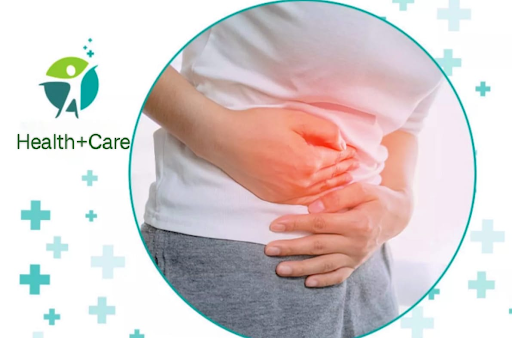

- Home
- Wellbeing+
- Protecting Your Gut: The Daily ...
Welcome back to Dailywell, your source for easy-to-understand health insights! Today, we’re diving deep into a topic that affects millions but often hides in plain sight—your stomach’s lining, and the conditions that threaten it: gastritis and gastropathy.
Why Your Stomach’s Lining Matters
Picture your stomach as a bustling kitchen. Its lining—the gastric mucosa—is the chef and the security guard, producing digestive juices while defending itself against those very acids. When this lining is harmed, your digestion—and well-being—can tumble fast, sometimes even leading to serious problems like ulcers, bleeding, or stomach cancer.
Gastritis vs. Gastropathy: What’s the Real Difference?
Both sound similar, but here’s the scoop:
- Gastritis is damage with inflammation—like the kitchen under siege by invaders like Helicobacter pylori (a common bacteria), immune attacks, or too many painkillers/boozy nights.
- Gastropathy is damage without inflammation—think of repeated chemical spills weakening the floor, usually from long-term NSAID use, bile reflux, or lifestyle stressors.
Recognizing the type matters because treatment isn’t one-size-fits-all!
What Puts You at Risk?
- Infections: H. pylori is the most notorious culprit for gastritis.
- Medicines: Regular NSAIDs (painkillers like aspirin/ibuprofen) can erode your stomach’s defenses.
- Lifestyle: Alcohol, spicy foods, caffeine, chronic stress, and smoking are all troublemakers.
- Autoimmunity: Sometimes, your immune system goes rogue and attacks your own stomach lining.
And here’s a twist: even foods like milk can trigger issues for those who are lactose intolerant.
Sneaky Symptoms to Watch For
Gastritis and gastropathy aren’t always loud. Sometimes, they whisper:
- Discomfort or pain high up in your belly
- Bloating, burping, nausea
- Indigestion or feeling full way too soon
- Loss of appetite, unexplained weight loss
- Black, tarry stools or vomiting dark contents (signs of bleeding)
- Some people barely notice until things get serious
If you experience sudden, severe symptoms or see blood in your stool, reach out to your doctor—don’t wait!
Diagnosing Stomach Lining Problems
Modern medicine relies on endoscopy—a tiny camera goes inside to look at your stomach lining, often with a biopsy to confirm inflammation or check for sneaky bugs like H. pylori. New imaging methods and staging systems (OLGA/OLGIM) help doctors track your cancer risk and guide the best treatment plan.
Dailywell’s Tips for Relieving and Preventing Stomach Troubles
The good news? Most stomach lining problems can be managed—and often prevented—by being mindful of your daily choices:
- Eat Smart: Favor gentle foods—steamed veggies, whole grains, lean proteins. Avoid the spicy, fried, and highly processed stuff.
- Limit NSAIDs & Alcohol: Use painkillers only when needed, and drink wisely.
- Mind Your Moods: Stress really can disrupt your gut—try meditation or a brisk walk.
- Quit Smoking: Tobacco isn’t just bad for lungs—it sabotages your stomach healing!
- Routine Checkups: Don’t ignore persistent pain or strange symptoms.
The Future of Stomach Care
Advances in blood and stool tests, genetic screening, and smart imaging mean diagnosis is becoming less invasive and more accurate. Precision medicine is tailoring treatments just for you—not just for “people like you”.
Our gut health journey is heading for a bright future. But remember: prevention, early detection, and self-care remain your best defenses.
Final Thoughts from Dailywell
At Dailywell, we believe knowledge is power—and small, smart choices every day protect your gut for years to come. If you’re dealing with stomach issues, don’t be shy about seeking help. Your stomach lining may be out of sight, but it deserves front-and-center care.
Stay informed, eat well, and be kind to your gut—it’ll thank you!
FAQ: Gastritis & Gastropathy
What are the main symptoms of gastritis and gastropathy?
Both can cause upper abdominal pain, nausea, vomiting, bloating, indigestion, and loss of appetite. Severe cases may feature blood in vomit or stools, or unexplained weight loss. If you notice any of these severe symptoms, seek medical help immediately.
What causes gastritis and gastropathy?
- Gastritis: Most often linked to infection with Helicobacter pylori, excessive alcohol, frequent NSAID/painkiller use, autoimmunity, stress, and some digestive diseases.
- Gastropathy: Typically caused by chemical irritants (NSAIDs, alcohol, bile reflux), prolonged fasting, spicy foods, and chronic stress.
How are these conditions diagnosed?
Doctors use clinical exams, blood tests, stool checks, and imaging. However, endoscopy and biopsy are the gold standard—allowing direct visualization and tissue examination for infection and inflammation.
What treatments help heal gastritis or gastropathy?
- Antibiotics are prescribed for H. pylori infection.
- Proton pump inhibitors (PPIs), antacids, and H2 blockers relieve acid and support healing.
- Lifestyle changes: Eat gentle, bland foods; limit spicy, acidic, and processed foods; moderate alcohol; quit smoking; manage stress.
- In severe cases or when caused by anatomical changes, surgery may be an option.
What foods are best—and worst—for stomach lining health?
- Best: High-fiber, low-fat, and low-acid foods (whole grains, fruits, veggies, fish, lean meats, eggs, and caffeine-free teas).
- Worst: Spicy, fried, and highly processed foods, excess coffee or alcohol, and anything you’re known to be sensitive to (like dairy for lactose intolerance).
Can gastritis or gastropathy become serious?
If left untreated, these conditions can lead to ulcers, anemia, and higher risk of stomach cancer. Early treatment and lifestyle changes make a huge difference.
How can I prevent stomach lining problems?
- Limit NSAID/painkiller use.
- Avoid alcohol & smoking.
- Eat a balanced diet.
- De-stress and rest well.
- See a doctor if symptoms persist or worsen.
When should I contact a doctor?
If you experience severe abdominal pain, vomiting blood, black/tarry stools, unexplained weight loss, or persistent nausea and vomiting—call your doctor right away.
Will I have to live with stomach lining disorders forever?
For most, symptoms improve with proper treatment and lifestyle changes. Chronic cases need ongoing care, but most people can manage symptoms and prevent complications.
Can I still enjoy eggs or bananas with gastritis?
Yes! Eggs and bananas are generally safe as part of a bland diet, unless you have specific food sensitivities or allergies.
If you have other questions or want more detailed tips, leave a comment or reach out to your healthcare provider!
Recent Posts
- Obsessive-Compulsive Disorder (OCD): A Human-Centered Exploration
- Protecting Your Gut: The Dailywell Guide to Understanding Gastritis and Gastropathy
- Comprehensive Insights into Rectal Cancer: Signs, Treatments & Future Perspectives
- Calm Your Pressure: Natural Ways to Control Hypertension Through Meditation and Lifestyle
- Understanding Acne: Causes, Effects, Treatments & Natural Remedies for Clear, Healthy Skin
Recent Comments
Archives
Search
All Tags
Search
Gallery






Recent Post
Obsessive-Compulsive Disorder (OCD): A Human-Centered Exploration
- January 24, 2021
- 4 min read
Protecting Your Gut: The Dailywell Guide to
- January 24, 2021
- 7 min read
Comprehensive Insights into Rectal Cancer: Signs, Treatments
- January 24, 2021
- 6 min read







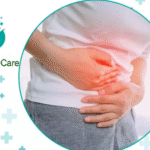
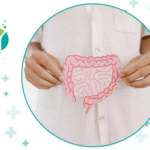




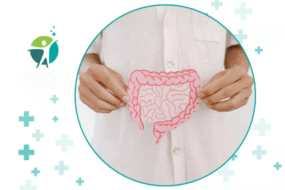

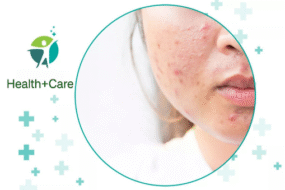
No Comments